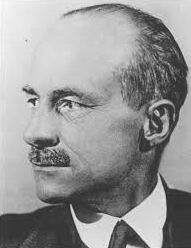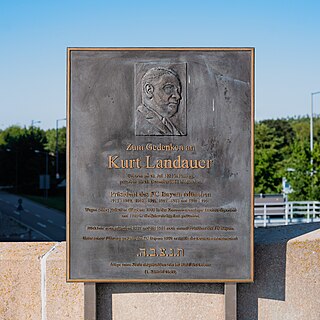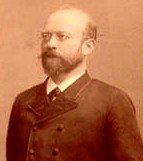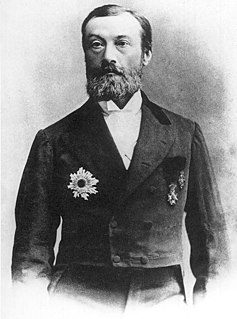 W
WThe term German Empire commonly refers to Germany, from its foundation as a unified nation-state on 18 January 1871, until the abdication of its last Kaiser, Wilhelm II, on November 9, 1918. Germans, when referring to the Reich in this period under the Kaisers, 1871 to 1918, typically use the term Kaiserreich.
 W
WOttomar Anschütz was a German inventor, photographer, and chronophotographer
 W
WWilhelm Barnim Dames was a German paleontologist of the Berlin University, who described the first complete specimen of the early bird Archaeopteryx in 1894. This specimen is currently in the Museum für Naturkunde.
 W
WWolfgang Doeblin, known in France as Vincent Doblin, was a French-German mathematician.
 W
WWerner Hegemann was an internationally known city planner, architecture critic, and author. A leading German intellectual during the Weimar Republic, his criticism of Hitler and the Nazi party forced him to leave Germany with his family in 1933. He died prematurely in New York City in 1936.
 W
WKarl Johann Kautsky was a Czech-Austrian philosopher, journalist, and Marxist theoretician. Kautsky was one of the most authoritative promulgators of orthodox Marxism after the death of Friedrich Engels in 1895 until the outbreak of World War I in 1914. He was the most important socialist theorist during the years of the Second International. He founded the socialist journal Neue Zeit.
 W
WKurt Landauer was a German football official. His profession often listed as Kaufmann ("merchant"), was head of the advertising department of the major Munich daily newspaper Münchner Neueste Nachrichten, considered precursor to Süddeutsche Zeitung, which commenced publication after World War II. His claim to fame are his four tenures as the president of the football club FC Bayern Munich between 1913 and 1951. To date he remains the president with the longest time in office.
 W
WLouis Ferdinand Victor Eduard Adalbert Michael Hubertus, Prince of Prussia was a member of the royal House of Hohenzollern and the pretender for a half-century to the abolished German throne. He was also noteworthy as a businessman and a patron of the arts.
 W
WMartin Luserke was a progressive pedagogue, a bard, writer and theatre maker. He was one of the leading figures of German progressive education and a precursor of outdoor education. As his distinguished achievement counts the integration of community theatre into school and youth work. It was also integrated in German Youth Movement.
 W
WPaul Thomas Mann was a German novelist, short story writer, social critic, philanthropist, essayist, and the 1929 Nobel Prize in Literature laureate. His highly symbolic and ironic epic novels and novellas are noted for their insight into the psychology of the artist and the intellectual. His analysis and critique of the European and German soul used modernized versions of German and Biblical stories, as well as the ideas of Johann Wolfgang von Goethe, Friedrich Nietzsche, and Arthur Schopenhauer.
 W
WErnst Ferdinand Emil Marlier was a German pharmaceutical manufacturer who built the Wannsee Villa, where the Wannsee Conference was held.
 W
WMax Dienemann was a German rabbi, publicist and philologist. He was one of the leading Liberal rabbis in Germany. Together with Leo Baeck, he headed the Rabbinical Association of Germany, in which liberal and orthodox rabbis were organized. In 1935, he ordained Regina Jonas, the first female rabbi in Jewish history.
 W
WFriedrich Minoux was a German industrialist and financier who is best known for being one of the owners of the Wannsee House, where the namesake conference that would decide the fate of millions at the hands of the Nazis during World War II was held in early 1942.
 W
WIsaac Albert Mosse was a German judge and legal scholar. Mosse's importance lies in his work on Japan's Meiji Constitution and his continuation of Litthauer's Comments on the German Commercial Code.
 W
WJakob Ludwig Friedrich Wilhelm Joachim de Pourtalès was a German aristocrat and diplomat who served as the Ambassador to the Russian Empire in Saint Petersburg from 1907 to 1914.
 W
WCarl Friedrich Hermann Roesler was a German legal scholar, economist, and foreign advisor to the Meiji period Empire of Japan.
 W
WErnst Heinrich Wilhelm von Stephan was a general post director for the German Empire who reorganized the German postal service. He was integral in the founding of the Universal Postal Union in 1874, and in 1877 introduced the telephone to Germany.
 W
WSalo Siegfried Translateur, or Siegfried "Salo" Translateur, Hebrew: זיגפריד "סאלו" טרנסלטור was a German conductor and composer of waltzes, marches, and other light dance music. Today he is most famous for his Wiener Praterleben waltz, which became popular as Sportpalastwalzer in 1920s Berlin.
 W
WJohannes Winkler was a German rocket pioneer who founded the first German rocket society and launched the first successful liquid-fuelled rocket in Europe.
 W
WPeter Graf Yorck von Wartenburg was a German jurist and a member of the German Resistance against Nazism. He studied law and politics in Bonn and Breslau from 1923 to 1926, gaining his doctorate in Breslau in 1927 and passing the civil service entrance examination for lawyers in Berlin in 1930. He married Marion Winter that same year.
 W
WEduard Zuckmayer was a German pedagogue, composer, conductor and pianist. He was the older brother of the famous German writer Carl Zuckmayer (1896–1977).